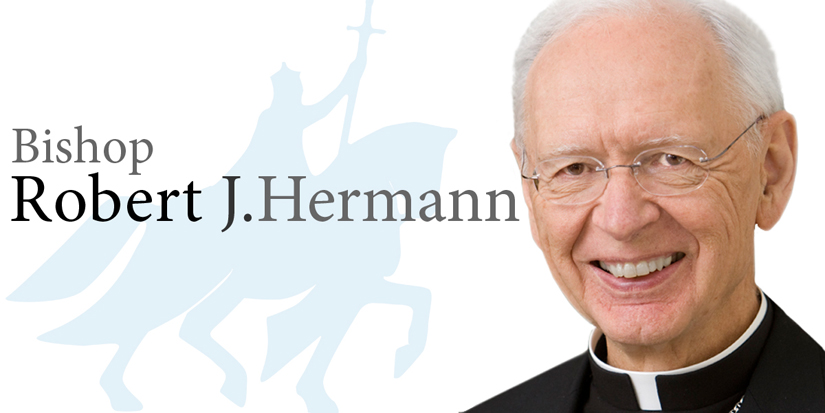 The readings for Sunday, June 23, are as rich as humanity is weak. The feast of the Body and Blood of Our Lord is truly a feast for all those who have been overwhelmed by their own spiritual poverty.
The readings for Sunday, June 23, are as rich as humanity is weak. The feast of the Body and Blood of Our Lord is truly a feast for all those who have been overwhelmed by their own spiritual poverty.
Melchizedek, in the first reading, is a most mysterious figure. Without father or mother, he is “a priest of God the Most High.” He seems to have neither predecessors nor descendants. He seems to have come out of nowhere and mysteriously appears on the scene as Abram returns from battle. The name Melchizedek itself means king of righteousness. He “brought out bread and wine, and being a priest of God Most High, he blessed Abram with these words: ‘Blessed be Abram by God Most High, the creator of heaven and earth; and blessed be God Most High, who delivered your foes into your hand.’”
He makes it clear that Abram’s victory was a blessing from God. Abram offers Melchizedek a tenth of his treasure. Melchizedek’s role is to let Abram know that God is the source of his success. This is why Abram offers God a tithe. This event helps confirm God’s promise to Abram that he would be the father of many nations.
The blessings that will come upon the whole world will come through Jesus, a descendent of Abram.
In the second reading, Paul explains that he received from the Lord what He taught His disciples. The Lord Himself, at the Last Supper, took bread and wine, gave thanks, broke it and said: “This is my body that is for you. Do this in remembrance of me.” Likewise our Lord took the cup and said: “This cup is the new covenant in my blood. Do this, as often as you drink it, in remembrance of me.”
Paul then says: “For as often as you eat this bread and drink the cup, you proclaim the death of the Lord until He comes.” What Paul says flows from the account of the Last Supper. Yes, when we consume the consecrated host we are eating the body of Christ, and when we drink the consecrated wine we are drinking the blood of Christ.
Perhaps the Gospel lays out more clearly the need we have to receive the Body and Blood of our Lord. The scene is in the desert. About 5,000 people are gathered there. They are without food. Because the apostles are only human, they have only human answers. They tell Jesus: “Dismiss the crowd so that they can go to the surrounding villages and farms and find lodging and provisions; for we are in a deserted place here.” Jesus scrambles their human brains: “Give them some food yourselves.”
Christ wants them to experience their utter helplessness. They know of only human solutions, and here human solutions are inadequate. Christ is trying to raise their minds above the human level. I picture Christ saying: “You klutzes! Here I have been working miracles and mighty deeds and preaching life- altering homilies and you still see me as one of you. When are you ever going to wake up to who I am?”
He now has their full attention. He looked up to heaven and said a blessing over the few loaves they had and asked them to distribute them. All 5,000 were fed with 12 baskets of fragments left over.
We may well say to ourselves, “They should have seen Jesus as this resourceful person who always finds a way out. Why did they not put their faith in Jesus?”
Are we any different? We want ready answers for everything. When we don’t have them, do we depend upon Jesus? Too often, we find someone to blame for the problem. Perhaps we condemn ourselves for having put ourselves in an impossible predicament. We will do anything except trust Jesus with the problem.
Jesus, in the Holy Eucharist, is the resource that can solve all of our needs. Why not take our spiritual poverty to Jesus in the Holy Eucharist and rest our case with Him? Perhaps we will get frustrated because our need was not granted!
Perhaps a non-answer is the best answer Jesus could give. Perhaps we really did not need what we asked for in the first place. Perhaps instead of giving us an easy answer, Jesus tells us that He is giving us Himself, and that is better than any other gift He could give us.
Do I really trust that Jesus, in the Eucharist, is the answer to my spiritual poverty? Do I really rejoice when Jesus tells me that I have deeper problems than the ones I presented and that He is there to help me with these deeper needs?
Perhaps to appreciate the Eucharist in a deeper way, we should ask Jesus to help prepare us for the riches of the Eucharist by first revealing to us our real poverty, as He did the disciples in the Gospel.
Do not be disappointed if He reveals to you your sins! Relish that revelation because Jesus is about to offer you His merciful forgiveness so that you might stop beating yourself up because of your weakness.
When I receive Him in the Eucharist, do I boast to Him how much I love Him, or do I allow Him to boast to me how much He desires to love my sins away by lavishing His mercy upon me? Paul learned the language of peaceful surrender when he said: “I can do all things in Him who strengthens me.”